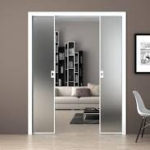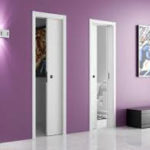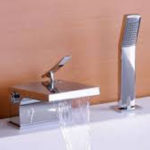Content
The BLS is committed to providing data promptly and according to established schedules. Automated retrieval programs (commonly called “robots” or “bots”) can cause delays and interfere with other customers’ timely access to information. Therefore, bot activity that doesn’t conform to BLS usage policy is prohibited.
Travel orders that include authorization for the transport
of excess luggage must include a justification detailing the specific official
purpose necessitating the transport and an estimated cost of such transport. If the employee does not obtain written
authorization in accordance with this section, the employee is responsible for
the difference between the first-class or business-class air accommodations
used and the authorized coach-class or equivalent accommodations. Extra-fare train service does not need https://turbo-tax.org/ to be
reported to GSA as long as the traveler was ticketed in the lowest class of
service offered on the train, even if that class of service was business class. The second method is for employers to base their lump sum payments on evidence of current or past activity. A simple example here would be when a service engineer travels to a customer’s site on the same train once a month. If the employer can prove that every ticket costs the same, then it would be reasonable to pay this expense based on that value.
Rates for Travel Expenses
The PCO/ACO will scrutinize each request to ensure that only the minimum travel, consistent with accomplishment of the official business, is authorized. First and last day of travel will be reimbursed at 75% of the per diem rate. The need for prorating the meal per diem occurs when a traveler has some meals provided by a conference, lodging accommodations or host. Employees traveling on University business are covered by several types of insurance, for injuries to themselves, property, or damage incurred to others. Any injury to persons or damage is to be reported to the Office of Risk Management as soon as possible.
- A temporary work location is one that’s expected to (and does) last for one year or less.
- Government, the extra-fare train must reduce overall journey time by one
hour or more. - If a train has only two classes of accommodation
available (i.e., first and business), then the business class accommodation is
deemed to be classified as coach class for the purposes of official travel
since it is the lowest class offered. - Yes, Massachusetts employers must pay their employees for time spent traveling during the workday.
Should the traveler select another car rental agency, it is incumbent upon the traveler to be fully insured and purchase both Collision Damage Waiver coverage for collision and supplemental liability insurance. The traveler will be reimbursed for the cost of the insurance provided the fully insured rental does not exceed the cost of renting from National Car Rental. As directed by the Office of Risk Management, travelers are not permitted to rely on their personal car insurance coverage or a personal credit card coverage on University business rentals. Policy FN10 Other Business Expenses and Activities provides full detail on University-sponsored events, under which business group meals while on travel fall.
Fact Sheet #78F: Inbound and Outbound Transportation Expenses, and Visa and Other Related Fees under the H-2B Program
Since a passport can be used for multiple trips over several years, the cost is not a project-specific expense and therefore is not allowed on most sponsored projects as a direct cost. Visas are generally required in relation to a specific trip and therefore the cost is generally allowable as a direct cost for a sponsored project. The traveler may be required to provide an explanation of the tolls incurred. If no receipts are provided, parking expenses must be categorized as miscellaneous subject to the $5 per day provision for miscellaneous expenses.
For example, professional publications and other continuing education materials can be deducted from your business taxes. Tools and uniforms purchased by the employer also qualify for a deduction, though some may deduct the cost of these items from their employees’ paychecks. “These are items that can be deducted from employee pay on a pre-tax basis and are exempt from federal income tax withholding, Social Security, and Medicare taxes,” Reynoso told CO—. “These have the potential to lower employer payroll tax and lower employees’ taxable income, which is a real win-win.” It is sometimes possible to save airfare by scheduling an additional night’s stay in one’s travel itinerary. When compared to a normal schedule for the business purpose of the trip, if the documented savings in airfare offsets the increased cost of the trip to be incurred by the University, then the extended stay is acceptable.
How Transportation Expenses Work
Travelers may use other services such as Uber, but receipts are still required to be reimbursed. Travelers need to be aware that there is no guarantee of safety when using such services. Refer to the Airfare Booking Options and Services table, which provides a consolidated view of the options available and the requirements for each.
- This is acceptable provided the University’s cost is not more than the business portion alone.
- These 2023 limits are each up $20 from the 2022 transportation expense and parking expense limit of $280.
- According to Will Lopez, Head of Mission and Chief Ambassador for Gusto, the most common benefits-related tax deductions for small business owners are retirement vehicles like SEP IRAs, SIMPLE 401(k)s, and 401(k)s.
- When travel by car or train rather than flying extends the length of travel, one night’s lodging and one day of per diem, equivalent to a reasonable travel day, may be reimbursed for the trip in each direction.
- Once this amount has been reimbursed, the employer may elect to recoup this money in subsequent workweeks by making deductions from the worker’s paycheck to the extent that such deductions do not violate the FLSA minimum wage requirement.
Unallowable expenses charged to the Purchasing Card will be netted against reimbursement due to the traveler. In the event that the unallowable expenses exceed the reimbursement due, the difference will be charged to the employee as a reduction of the next payroll amount. Employee authorization is given for these steps when the employee accepts the terms of using the Purchasing Card for travel. Employees may use their personal vehicles to travel across campus or to off-campus locations. In the event that an alternative car rental agency is sought, for whatever reason, the University traveler must select from one of these nationally known reputable agencies. This requirement is stipulated by the Office of Risk Management and is to ensure that any vehicles rented can be deemed safe, and that any resulting insurance issues can be addressed with a reputable nationally known corporation.
This can be accomplished by accessing the Office of Risk Management website. Workers’ Compensation covers any personal injury to employees conducting University business. When a receipt is lost, the traveler must make a good faith effort to obtain a duplicate, which is typically possible when one pays with a credit card.
- Allowable time for travel by privately owned conveyance is
limited to that which is reasonably required. - Visitors from other countries require special processing in order to comply with federal immigration and IRS requirements.
- Only the employee who paid for the group meal is eligible to be reimbursed for the cost of the group meal.
A traveler may be reimbursed for uninterrupted business travel by the most direct route. When a traveler interrupts travel or deviates from the direct route for personal reasons, a reimbursement may not exceed the cost of the most direct route. If the traveler extends the duration of the trip for non-business reasons and the alternate rate https://turbo-tax.org/employment-expenses-of-transport-employees/ is lower than the direct rate for the comparable period, the reimbursement shall be for the lower rate. It is possible that the traveler may combine personal travel with a business trip that would reduce the overall cost to the University. This is acceptable provided the University’s cost is not more than the business portion alone.
























































































